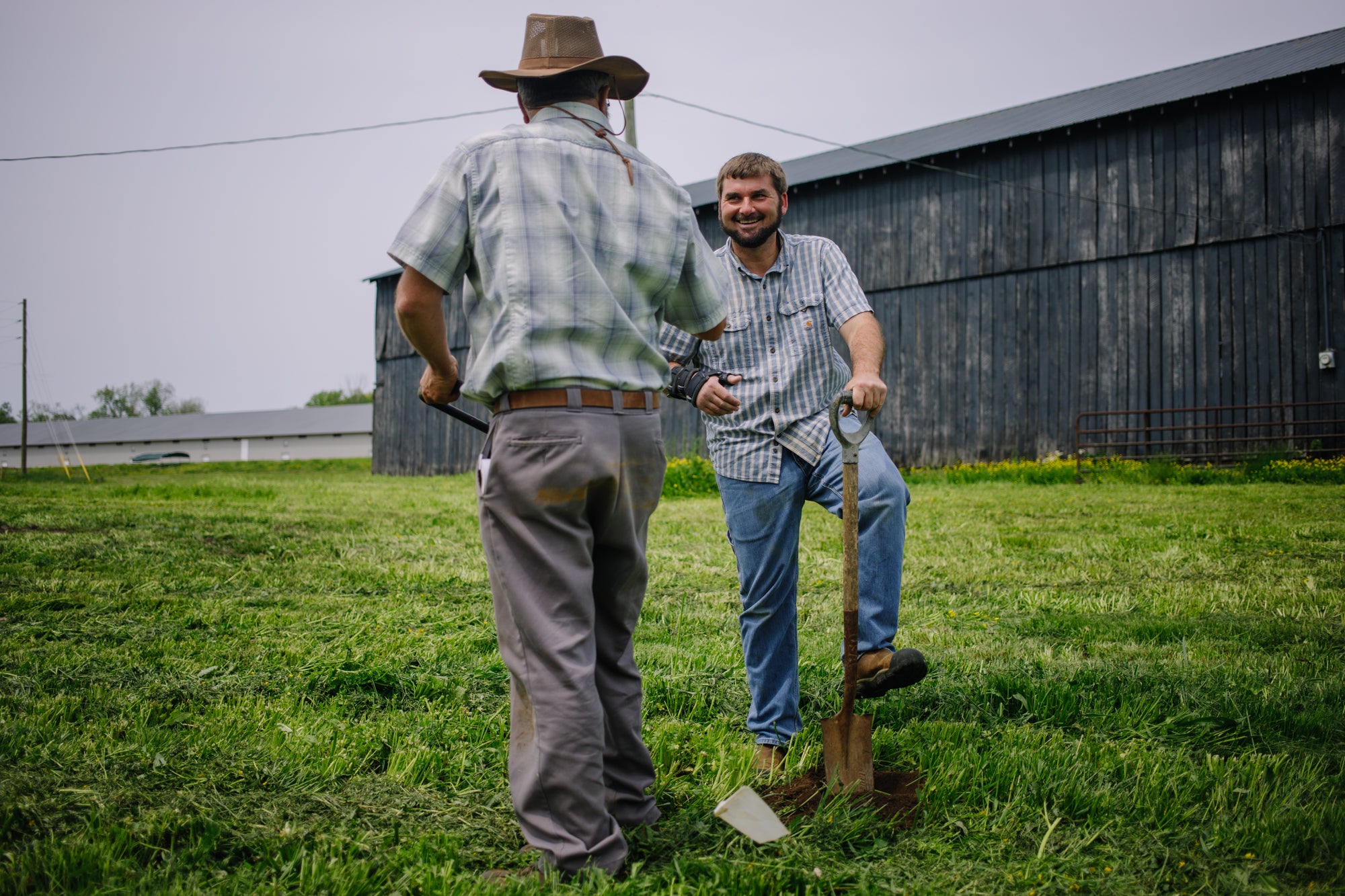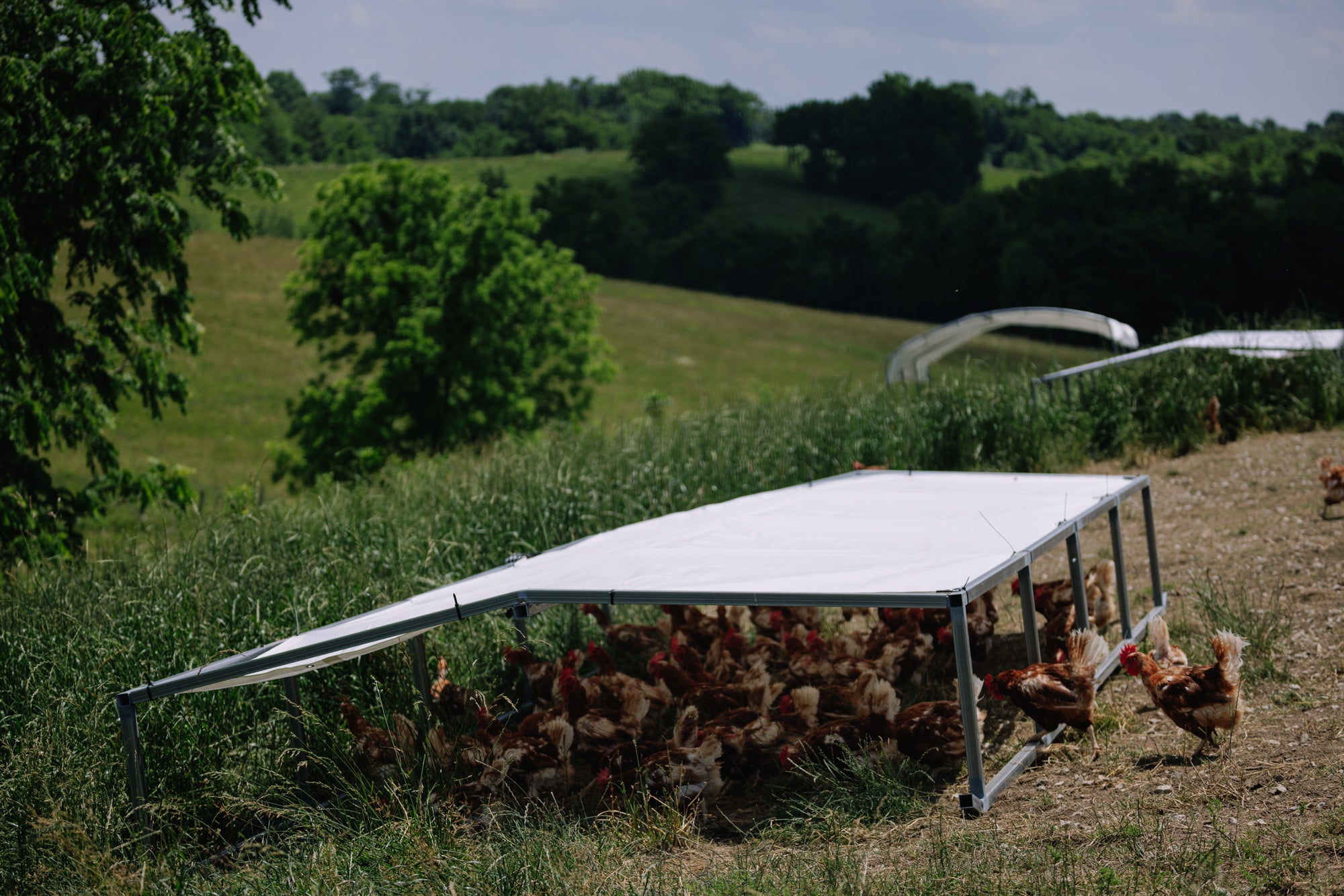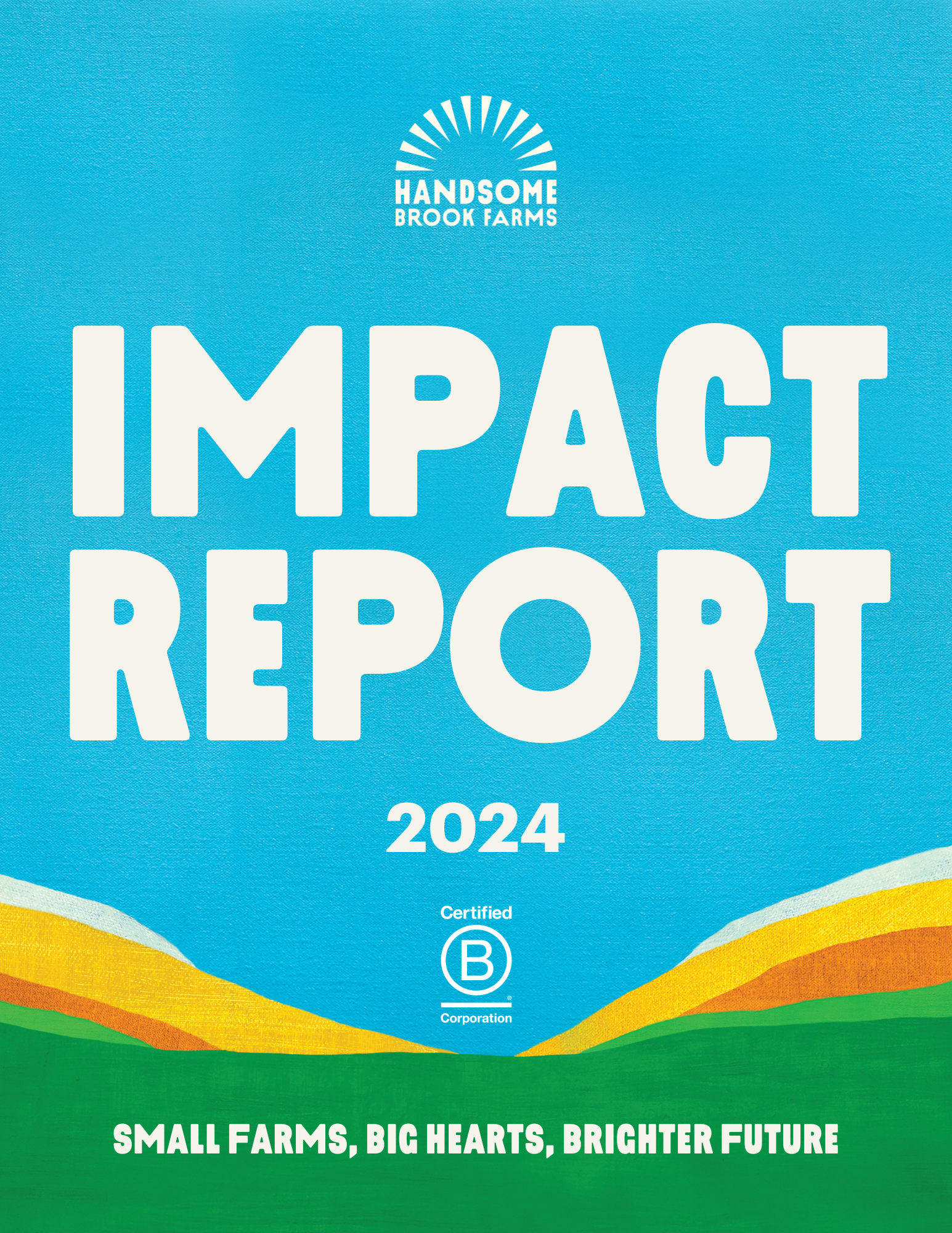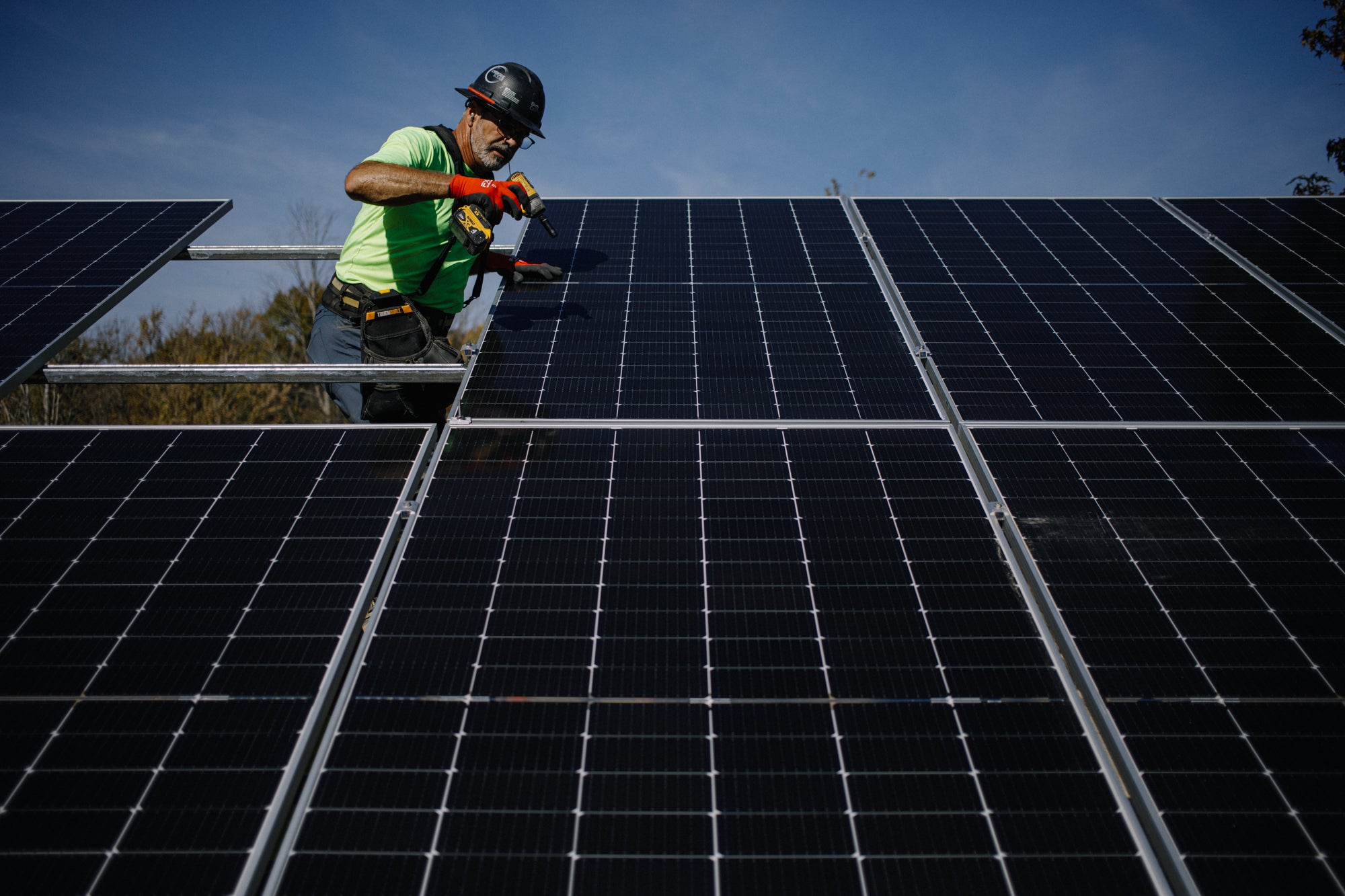Sustainable Egg Farming in Action: Larry Schmidt’s Commitment to Climate-Smart Practices

Larry Schmidt has been a proud egg farmer for the past few years, operating a small organic farm in Hustonville, Kentucky. He has always believed in putting the health of his hens and the land first, which is why he enrolled in Handsome Brook Farms’ Climate Smart Organic Egg Project. Funded by the USDA’s Partnerships for Climate-Smart Commodities Grant, this initiative helps farmers like Larry adopt socially and environmentally conscious practices while continuing to produce high-quality, organic eggs for customers.
Handsome Brook Farms is leveraging funding through the USDA's Partnerships for Climate-Smart Commodities for its Climate Smart Organic Egg Project which supports egg producers in reducing their carbon footprint, improving sustainability, and contributing to a climate-resilient future for farming.
The project is one of approximately 140 projects that the USDA is investing $3 billion to build and expand markets for commodities made with climate-smart practices. The department hopes to increase the competitive advantage of U.S. agriculture both domestically and internationally, building wealth in rural communities. These climate-smart projects support a diverse range of producers and operations as they voluntarily adopt climate-smart agricultural practices and market the resulting commodities.

Farm Improvements for Sustainability
For Larry, the support from this program has allowed him to make key improvements on his farm. A major development was the installation of solar panels on his farm, helping him reduce his reliance on non-renewable energy.
“If it's not keeping up with the energy demands in June, July, and August, when the fans are all on and I'm using a lot of electricity; The way I understand it, the power company uses the credits I’ve banked throughout the year which means it should cover all my electricity bills.”
Handsome Brook Farms’ sustainability efforts are closely aligned with those of their grant support partner, Costco. As part of Costco’s Climate Action Plan, they prioritize sourcing products from environmentally responsible suppliers. By investing in renewable energy on small farms, both Handsome Brook and their partner farmers aim to build a more sustainable supply chain. Costco has increased its purchases of renewable energy in its operations and increased their reduction commitment from 20% to 39% by 2030, emphasizing that “climate action is critical for all of us.” Together, Handsome Brook Farms and Costco are driving efforts to reduce emissions and create a greener future.

Improving Soil and Hen Health
In addition to solar energy, Larry has incorporated cover cropping with organic seed blends to improve soil health. This practice not only prevents soil erosion but also increases the farm’s resilience to extreme weather conditions.
A few months after planting, Larry notes, “I tried to let it grow up taller than normal this summer, so that it would reseed itself. I’m really pleased to see that the grasses have germinated and begun to fill in the pasture.”
Healthy soil also plays an essential role in supporting hen health. By maintaining lush, nutrient-rich pastures, Larry ensures his hens have access to diverse foraging options, which helps improve their diet and overall well-being. “Our hens love being out on pasture,” he says.
“A day like today, they don't like the sunny weather. In the evening, as the sun is setting, they'll follow the shadow that keeps coming this way and you'll just see them right against that shadow taking them out to the pasture. My thinking with putting the solar array near the barn is to give the hens shade near the barn to encourage them to go out further to the shaded pasture.”
This approach to pasture management, combined with prescribed grazing, ensures that Larry’s hens are not only well-fed but also live in a low-stress environment, which is key to maintaining a healthy flock.
“I have been around some areas that have been using a lot of chemicals in their agriculture,” Larry says, “and I feel like organic farming is vital to the health of animals, health of humans, and to me that's very enthusing. That's why organic was top of my list when I thought of doing something different.”
The synergy between healthy soil and happy, well-cared-for hens is part of Larry’s holistic approach to farming, ensuring both environmental and animal welfare in his operation.

A Partnership for the Future
One of the Climate Smart Organic Egg Project’s main goals is to increase resilience for small and medium-sized farms. The grant program provides Larry and other farmers with the tools and financial backing they need to implement long-term solutions for environmental challenges.
“I feel like the grant is really going to help sustain [the hens],” Larry emphasizes, “and as farmers, we want to be proactive and give the hens the best environment to sustain them.”
About future plans, Larry mentions that the grant will focus on “regenerating the ground,” noting, “I've had an interest in farming for quite some time. I have three daughters, and I really wanted to spend time with them as a father and enjoy the family. And so when I started thinking of opportunities, this one stood out to me as being something we could enjoy together.”
On World Egg Day, Larry’s story stands as an example of how partnerships between farmers, businesses, and the USDA are driving meaningful change in agriculture. By supporting climate-smart practices, the project helps farmers like Larry protect their livelihoods while playing a crucial role in mitigating the effects of the climate crisis.

By supporting a diverse range of producers and operation types, USDA and its partners are innovating a number of climate-smart solutions that impact numerous natural resource concerns while also strengthening rural economies by diversifying revenue streams. To learn more about Handsome Brook Farms’ project and other Partnerships for Climate-Smart Commodities projects, visit the project dashboard. Interested producers can learn more about projects in their state by commodity type and climate-smart practice implementation and can access project sign-ups via the site.



